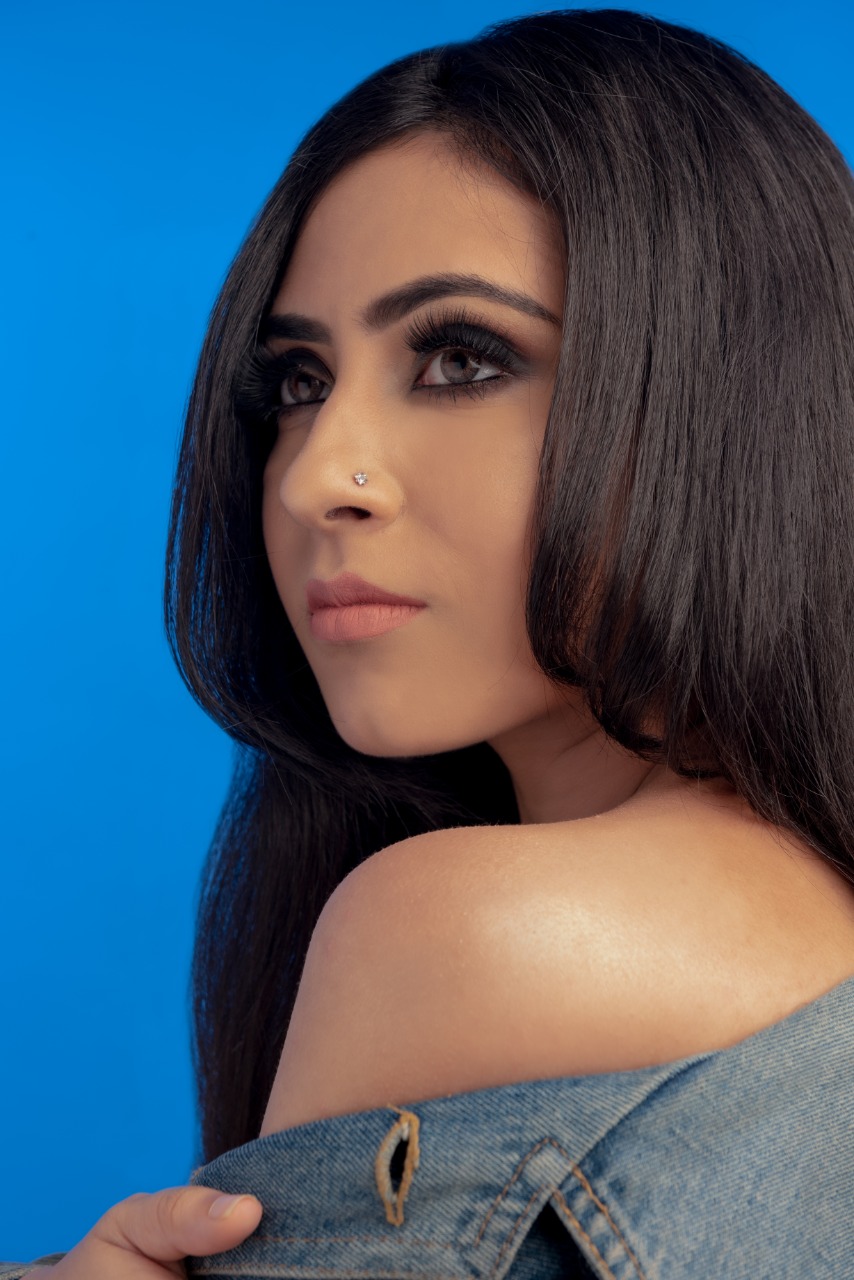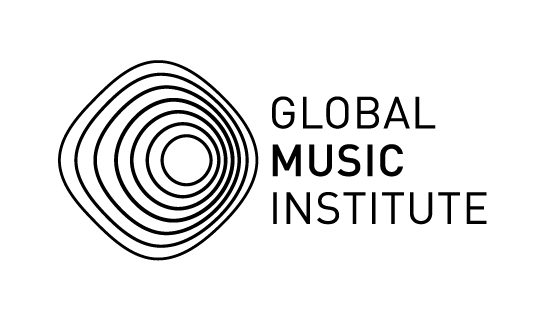
03 Sep Alum in Focus: Tarana Marwah (Komorebi)
GMI alum are performers, producers, educators, entrepreneurs, and creatives who thrive on and off stage throughout the world. The Alum in Focus series brings their stories to you.
For this feature, we connected with Tarana Marwah who graduated from GMI in 2014. An electronic producer, composer, singer and multi-instrumentalist based in New Delhi, Tarana is known for her electronica outfit, Komorebi, as well as for scoring popular OTT series such as Bombay Begums and Made in Heaven.
Trained in classical piano at the tender age of 7, Tarana has since learnt various styles of music including Jazz Performance and Electronica. ‘Komorebi’ (Japanese for sunlight that filters through tree leaves) is an electronic act inspired by the anime soundtracks and chiptune music she heard as a kid. The music is whimsical, orchestral, celestial.
Tarana released her first self-titled EP in 2015, after which the act gained mercurial success. Some notable performances at festivals including NH7 Weekender, Magnetic Fields, Red Bull Tour Bus, Echoes of Earth, Wonderflip, and Music Matters in Sri Lanka. Komorebi’s debut album released in 2017, ’Soliloquy’, has also caught the attention of many – placing Komorebi on the indie radar from India.
When asked to distinguish between Tarana and Komorebi, Tarana replies, “Tarana is a musician and a nerd. Komorebi is the product of both.”
Context
I want to provide some context about my position for readers. As a GMI alum and an electronic producer myself, I was thrilled to interview Tarana. I have followed her music since I was a teenager. Her debut, then released on Soundcloud, had a huge impact on my sensibilities. My electronica outfit, Static River, draws from Komorebi’s influences including Komorebi herself. When I was asked to come up with questions, I approached them from the lens of an aspiring electronic musician asking a seasoned one about their work and journey. Excerpts follow.
—
We begin with Komorebi’s recent release, Chanda. Released on July 29, 2021 on JioSaavn’s in-house label dedicated to empowering independent artists (Artist Originals), Chanda has garnered praise from all corners, including over 500,000+ views on YouTube.
How is Chanda different or similar to your previous releases? How do you feel about the response?
Chanda is my Hindi debut. It’s similar in its musical/ sentimental sensibilities, and different in the packaging. I’m very happy with the response. It was amazing to see people respond so positively and warmly.
What was your experience writing in Hindi? Is this something you are looking to explore in future releases?
It was interesting, to say the least. I find myself limited sometimes with my facilitation of language. It’s easier for me to say things in English. However despite the learning curve, there’s a certain comfort and familiarity with Hindi. My next release is in Hindi as well.
Chanda is a multi-sensory experience. The video is animated by Arushi Kathuria and the cover art was made by Delhi-based designer Sijya Gupta (also a GMI alum). Offering a multidimensional experience is at the heart of many Komorebi releases. In many ways, Komorebi is an immersive experience. From fashion to visual storytelling, how do you build this experience and connect with artists from other media who share your vision?
I have always wanted to marry the worlds of animation and music. My influences play a strong part in why. I grew up watching Björk push the boundaries with mixed media content, Gorillaz creating characters that sing their songs for them (Noodle was my favourite). Grimes or even Lady Gaga and her aesthetic. Furthermore anime and scores from anime was the reason I ever wanted to start writing music to begin with. I will never forget the first time I heard Shiro Sagisu’s soundtrack for Bleach. Or the Post Rock score for Death Note.
 Besides artists from other media, you have also collaborated with other musicians notably Kamakshi Khanna and Abhilasha Sinha (RIVER), Curtain Blue (CBKO) and Gaurav Raina. How have these collaborations influenced your sound and what role do you think collaboration plays in creative growth?
Besides artists from other media, you have also collaborated with other musicians notably Kamakshi Khanna and Abhilasha Sinha (RIVER), Curtain Blue (CBKO) and Gaurav Raina. How have these collaborations influenced your sound and what role do you think collaboration plays in creative growth?
Collaborating with all of these artists has helped me get out of my head and expand my vision. Sometimes one can get myopic.
Aside from releasing music as Komorebi, you (Tarana) have also composed scores for OTT shows like Made in Heaven and Bombay Begums. Both shows were massive hits and both are returning with second seasons. What appealed to you about these opportunities? Were you always interested in getting into scoring?
Yes absolutely, that was always the plan. Being a producer has aided this so much. Both skill sets spill into the other’s habitat and help create a holistic approach to music. I’m blessed to have both.
Over the years, you have developed the competence to score for visual media as well tap into your interior vision to compose your own music. How are the skills required to score different from or similar to working on your music?
The arrangement and environment for both are completely different. Soundtracks require you to pay attention to the director’s creative vision just as much as your own. Writing songs asks for honesty presented musically in a way that is unique to you. Both require attention and focus.
Drawing on the similarities, is there something you have learned from your scoring assignments that you are able to take back to Komorebi i.e. your individual creative practice?
The art of listening to what you’re creating. And general skills in the production space. I’m happy I could pick up a trick or two.
How can aspiring musicians develop skills to score?
By listening to existing scores and taking inspiration. By watching tutorials – there is no dearth of information available online. I think these two are pretty damn solid.
Readers looking to build a strong foundation in scoring or production are welcome to check out the Professional Diploma in Music Production & Technology at GMI.
The MPT program is a salient program for the current musical environment wherein music technology is becoming increasingly appealing to aspiring musicians. In a similar vein, only two years ago, Berklee started an Electronic Digital Instrument (EDI) program to train students to perform live music on electronic pro-audio gear.
Komorebi is one of the pioneers of live electronic performance in India. How do you go about crafting your live performances i.e. moving from produced tracks to live shows?
I use two different DAW’s – Logic Pro X for production and Ableton Live for my live sets. A combination of that with live gear and you’re good to go. I’m currently using Novation Launchpad, a KORG Volca Drum, and a Critter & Guitari sampler.
What advice do you have for someone looking to develop a creative practice where they perform live on pro-audio gear?
Practice makes perfect. Something I need to work on as well.
As we draw towards the end of the interview, what should the audiences look out for from Tarana and Komorebi in the near future?
Singles. EP’s. Album. It’s all coming!
—
If you’d like to follow Tarana’s musical journey, you can find her on Instagram and her music on Spotify as well as Youtube.
Tanya Sharma



No Comments